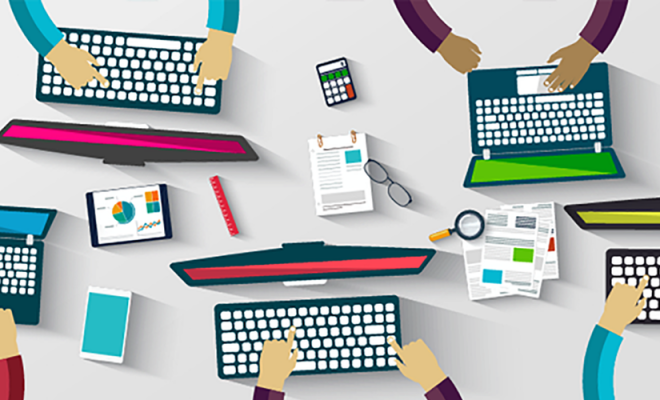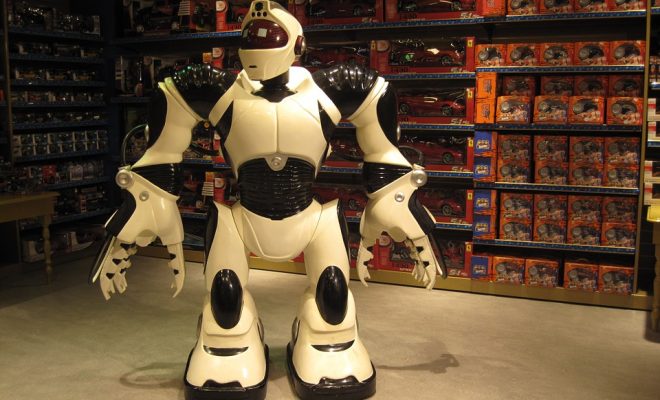5 Industries that Artificial Intelligence Will Disrupt

Can artificial intelligence disrupt certain industries? The answer, in short, is yes, but first, let’s take a look at what artificial intelligence is, and how it changes the world as we know it. Artificial intelligence is the development and ability of computer programs to complete tasks normally performed by people, such as speech recognition, language translation, visual perception, and even decision making. Artificial intelligence has the power to eliminate some jobs that are now being completed by people, but according to Connie Chan, artificial intelligence will also create jobs. Here are some industries that are being affected and or will be affected by artificial intelligence:
- Healthcare- One of the most immediate industries that are being affected and will continue to be affected by artificial intelligence is healthcare. Robots and computer programs are replacing personnel and staffing in doctors’ offices, hospitals, nursing homes, and other medical facilities. Robots and machines can manage patient wait-times, automate scheduling, and provide anesthetics to patients. Connie Chan in her article on artificial intelligence notes that anesthetics can even be given by machines with human monitoring. Additionally, on fowcommunity.com, Connie Chan states that advances are being made with regard to diagnosing illnesses. In the future, it is quite possible that computer programs will be able to diagnose as accurately, if not more accurately than people. Scary, or useful, we will let you decide!
- EdTech- Although robots and computer programs will not ever replace teachers, the EdTEch industry is also being significantly affected by the development of artificial intelligence according to Jeff Pruitt on com. Jeff Pruitt comments that it is becoming possible for students to be assessed through the use of machines. Some machines can read students’ emotions and expressions as well as report on students’ daily class performance. Advances in artificial intelligence also have the potential to affect the way we see test results, and how tests are scored. More and more exams can be administered online and as such, results can be given immediately to students. Some argue that automatic results are beneficial to the students, while others believe that online classes and testing are not ideal. Some education experts believe that online classes are not successful because students do not receive enough or any individual attention.
- Manufacturing- As we have already seen, machines are replacing blue-collar jobs across America. Manufacturing jobs are either being shipped out of America, due to the ability to pay foreign workers less or are disappearing because jobs are being replaced by robots. Connie Chan notices that assembly line jobs are disappearing because many of these jobs can be completed by robots and overseen by just one or two people. Assembly lines all over America are disappearing as robots are replacing the need for human workers in car factories, factories that produce electronics, and other assembly lines.
- Administration- All administration jobs will never completely disappear due to the development of artificial intelligence; however, some positions will disappear with the development of artificial intelligence. Some administrative and secretarial jobs are no longer needed because small and average-sized companies are using devices and even apps on their phone to track client appointments and schedules. Company executives and middle-level management can handle communication directly from their phones. Lynda Gratton of The Guardian comments, “Many medium-skilled jobs disappear as executives’ smartphones replace their secretaries and assistants.” For some companies, cutting costs including cutting secretarial services and other administrative jobs that they believe they can handle themselves or delegate to a part-time employee, rather than a full-time employee.
- Transportation- Approximately 50 years ago we believed that by the year 2020 everyone would be operating flying cars. Instead of flying cars being in our imminent future, automated cars that more or less drive themselves are on the horizon. Connie Chan has reported that companies such as Google, Tesla, and Uber are in the early stages of changing the way we view transportation. Self-driving cars are very likely in our near future, and although they would be very useful, they would also have the ability to greatly impact future availability of jobs in the transportation industry.
Implications for the Future
As we progress into the 21st Century, artificial intelligence will only continue to develop and become more advanced. Although some jobs may disappear or be dramatically reduced from the job market other areas may develop and expand, such as jobs in technology, computer programming, engineering, and robotics.






